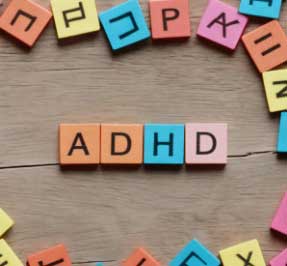If you’ve heard the term mindfulness but have never been properly introduced to the concept, you may wonder exactly what it means. Jon Kabat Zinne defines it as, “Paying attention in a particular way; on purpose, in the present moment, non-judgmentally.”
The practice of mindfulness can improve your experience of life dramatically. It is so vastly different from the way most Americans live their lives that it can take some time to cultivate. Like all habits, both good and bad, it takes time for mindfulness to feel easy. Be gentle with yourself; the more you practice, the sooner it will become second nature.
What Does Mindfulness Look Like?
Simply put, mindfulness looks like the present moment. It means staying focused on whatever you are doing, wherever you are, and nothing else. If you are doing the dishes, focus on the plate in your hand and getting it clean. Don’t take a phone call to talk about your friend’s job hunt and worry about your budget. Just do the dishes.
When we are mindful, we are not dwelling on things that happened in the past or worrying about the future. The truth is, all that is ever real is the present moment. You might be thinking that it is foolish and unrealistic to not make plans for the future, and you’re right! With mindfulness you don’t neglect those things. You set aside a time specifically for dealing with them, and approach them with awareness that you have no way of knowing what the future will hold. It’s good to make plans, just don’t grow too attached to them.
How Do You Know When You’re Being Mindful?
Many people are familiar with a couple of terms that are usually applied to work, athletics, and creative endeavors; Being “In the Zone” or “In a Flow State.” When you’re in this state, you are completely immersed in what you are doing, and it feels natural and easy. You may lose track of time, because you aren’t clock watching, you’re just doing. This is when people are the most productive and tend to make fewer mistakes.
You know that you are being mindful when more and more of your life begins to have this quality. You may notice that you are going about your day in a more focused and efficient manner and you stop trying to multitask.
Benefits of Mindfulness
Practicing mindfulness will positively impact your life in many ways. Depression is often a symptom of being stuck in the past. Anxiety arises when we are worrying about the future. When you are fully in the present moment, both depression and anxiety are lowered. In any given moment, if you are focused on just that moment, you are OK.
When you are being mindful, focusing on one thing at a time, you are more likely to do that thing well. Abandoning multitasking increases creativity, attention to detail, and efficiency. It may feel counter-intuitive, but you will actually get more done. Your energy levels will go up and stress will go down. It’s also likely that you will get more enjoyment out of normal everyday activities.
How to Practice
If you’ve got the concept but aren’t sure how to start applying it, here are a few tips to get you started.
- Make routine and ritual a part of your life. Each evening, set aside a time to make a list of everything you must do the next day, along with a schedule that includes set bedtimes, wake up times, and mealtimes.
- In the morning, use that list as a rough outline of your day. Don’t look at the whole list at once. In fact, cover all but the first item with a piece of paper. Do that thing. Give it your full attention. When you’re done, cross it off and slide the paper down to reveal the next. Repeat until bedtime.
- When your mind wanders, don’t beat yourself up. Just notice, and draw your attention back to the present moment.
- When emotions arise, and they will, don’t judge them as being good or bad. Just be mindful of what you are feeling and how you react to those feelings.
- Simple activities like making the bed or drinking a cup of coffee can feel like sacred rituals when performed with mindfulness. Make the bed neatly. Notice the way the fabric feels in your hands. When you drink a cup of coffee, notice the way it sounds when you pour it. Breathe in the smell. Pay attention to how it tastes, how it feels to swallow.
- If you’re having a conversation, listen with the intention of hearing, rather than with the intention of answering. Fully immerse yourself in what the other person is saying, and use reflective dialogue to be sure that you’ve properly understood.
Being mindful is a way of honoring your life. It gives each moment the significance it deserves. Your brain will reward you by quieting down and seeing things as they really are, rather than as a series of emotional perceptions. Life will become both fuller and simpler, which is a beautiful combination.
Devon is a Personal Life Coach, Certified Personal Trainer, licensed mental health/substance abuse counselor, experienced consultant, and nationally certified teacher. As a Life Coach, she focuses on supporting and encouraging achievement of personal best outcomes or goals in a specific challenging area. Her expertise, enthusiasm, energy and educational background serve to create a unique blend of services and techniques employed to help you reach your goals. For training, coaching, or counseling sessions, please contact her at 505.469.0779 or he***************@***il.com.




